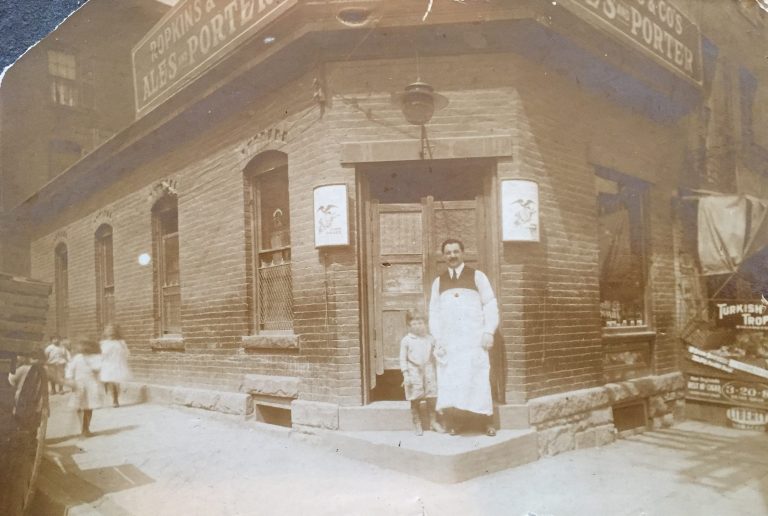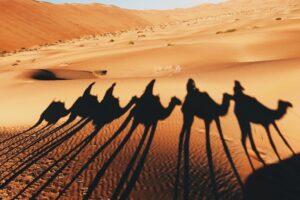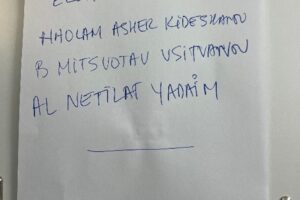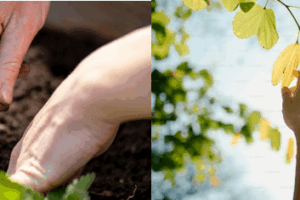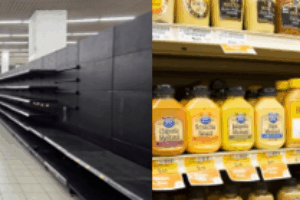Mayer Yellin and his son Normie (Andy’s grandfather and great grandfather) in front of Mayer’s bar in Hartford, CT circa 1913.
I think that leaving a legacy creates meaning for each of us. Legacy can help create a sense of belonging and may mitigate any feelings of loneliness.
How can we find meaning in our lives? Can we look to our family traditions for guide and inspiration?
What legacy has your family left to you? What is your legacy that you will leave to your family?
My greatest physical family legacy is my Passover handwasher (pictured below) that has been in my family since the late 1800s. I wrote about how this ordinary object has been transformed into one of my most extra ordinary possessions. (From my breakingmatzo blog: One example of something ordinary to extraordinary in my life is my family’s antique brass hand washer. I received it as a gift from my grandmother, Helen Fish Goldfarb. Her father, my great grandfather Max Fish received it from his father (my children’s great great great grandfather Moshe Fish). It is from the late 1800’s in Dynow Poland and has been in my family for over 100 years.)
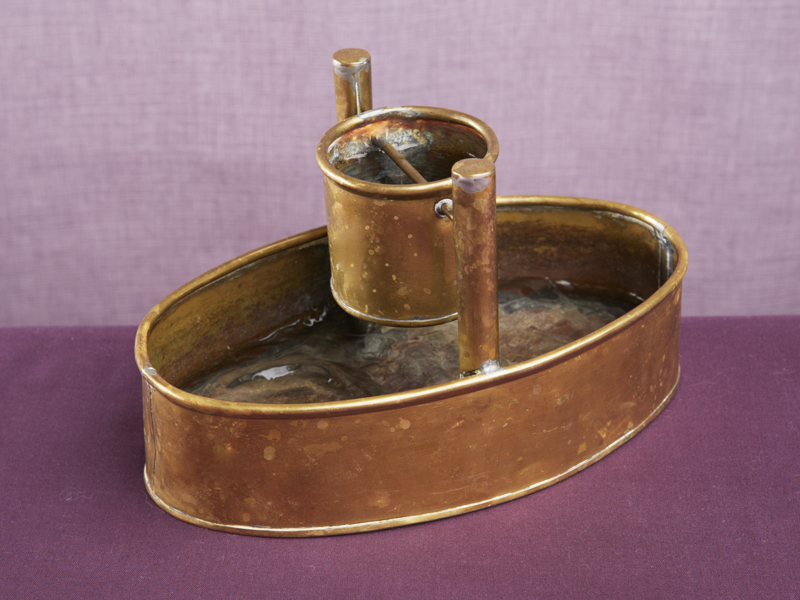
Does your family has an artifact or heirloom that has been handed down over the generations?
I wrote about the incredible life of Max Fish and how he saved over 42 relatives from the Holocaust. Some of my fondest Passover highlights as a child were celebrating Passover Seders in Pikesville, MD, with Eugene Fish’s family, one of Max Fish’s sons.
The Passover handwasher (pictured above) truly connects my children to over 150 years of our family heritage because it is a physical connection to our family background. This physical object can transport my children and their children through a portal to connect with our family history. https://breakingmatzo.com/philosophy/food-for-thought-seder-discussion-topics/
My mom (of blessed memory) gave me her lasting legacy of the love for Passover and celebrating the Jewish Home Holidays. My mom’s spirit is what has motivated me to create Breaking Matzo. Over the past two years, I have been so humbled by the beautiful comments that our community has shared about how you also share and celebrate the Jewish home holidays with your family and friends. All of your traditions and thoughts have been so inspirational.
When I thought about my physical connection to my great grandfather and my mom, I wondered about where I came from?
After some research, I discovered that both of my great grandmothers were born in the same year in the same town – both in 1882 in Vilna, Lithuania. My great grandparents all came to the United States around 1900. I also discovered that both sets of my great grandparents were married in the same year -1907, over 110 years ago.
When I thought about the legacies that I have received from my family, I realized that my maternal grandfather, Normie Yellin, also taught me lessons that I have tried to pass along to my children. My family legacy from Normie was not physical, but emotional. Normie imbued me with the feeling of unconditional love and support. He wrote me weekly letters when I was at boarding school. His letters always included $20 for pizza with my friends. In the midst of the stress of boarding school life, Normie’s weekly handwritten letters always boosted my spirits, filled my stomach with food, and heart with love. I will never forget his favorite expression that he always told me when I was a little down or frustrated. Normie would say “don’t let anyone rain on your parade!” Then he would repeat it with emphasis “DON’T LET ANYONE RAIN ON YOUR PARADE!” It has really become one of my life mantras. My children know the expression instinctively. We have repeated it so often. A favorite saying that my Mom always told me, “The early bird gets the early worm; the late bird gets the late worm; there is always a worm.”
My final family legacy that I want to share is the oldest family photograph that I have. This photograph shows Max Fish and his father Moshe Fish (my children’s great great great grandfather) and other relatives celebrating Passover in 1930 in Dinov, Poland. Sadly, a number of his relatives were murdered in the Holocaust. Fortunately, Max came to the United States and enabled me to be here today.
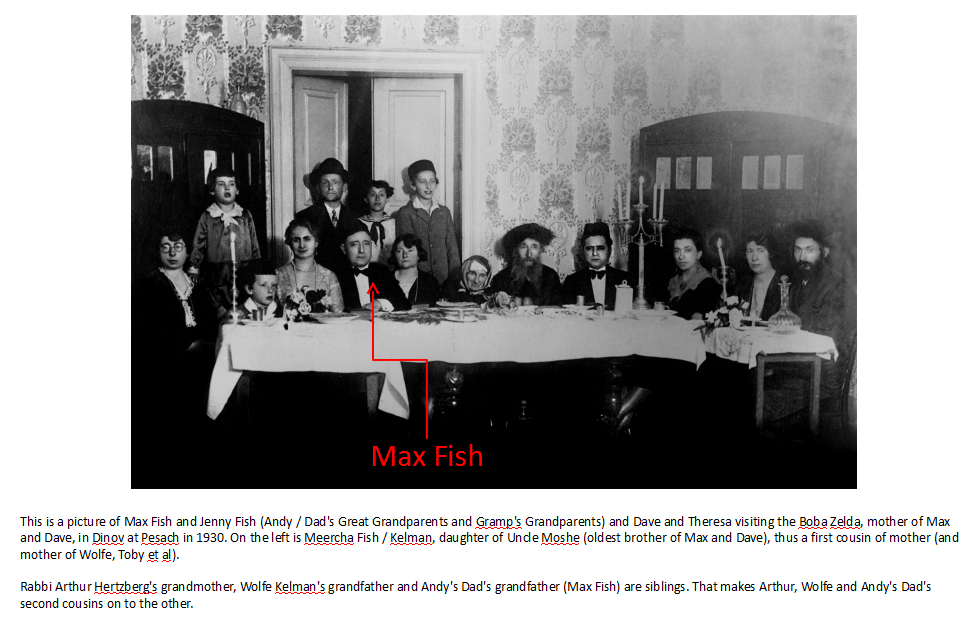
This is the oldest family photo that our family has.
I think that this is part of what makes Breaking Matzo so special. It is a chance for all of us to share and celebrate legacy and traditions from our parents and grandparents and then to pass the same (and sometimes new) traditions to our children and grandchildren.
I believe that tradition is repetitive action imbued with meaning. You never know when the first will occur. We all have the opportunity to leave a mark on our world and leave a lasting legacy for future generations.
I would love to hear your thoughts:
- What is the oldest legacy physical object in your family?
- What is the family lesson that you have learned from your relatives and will pass to your family?
- What is your oldest family photo?
Appendix:
I would like to share my family history with photos.
The oldest relatives that I remember meeting as a child are my paternal great grandparents, Max & Jenny Fish and my maternal great grandparents, Norman & Sophie Yellin.
Max Fish was born in 1881 in Dynov, Poland. Jenny Karnick Fish was born in 1882 in Vilna, Lithuania. They both came to the United States around 1900. Here is a photo of Andy with Max & Jenny Fish in 1968.
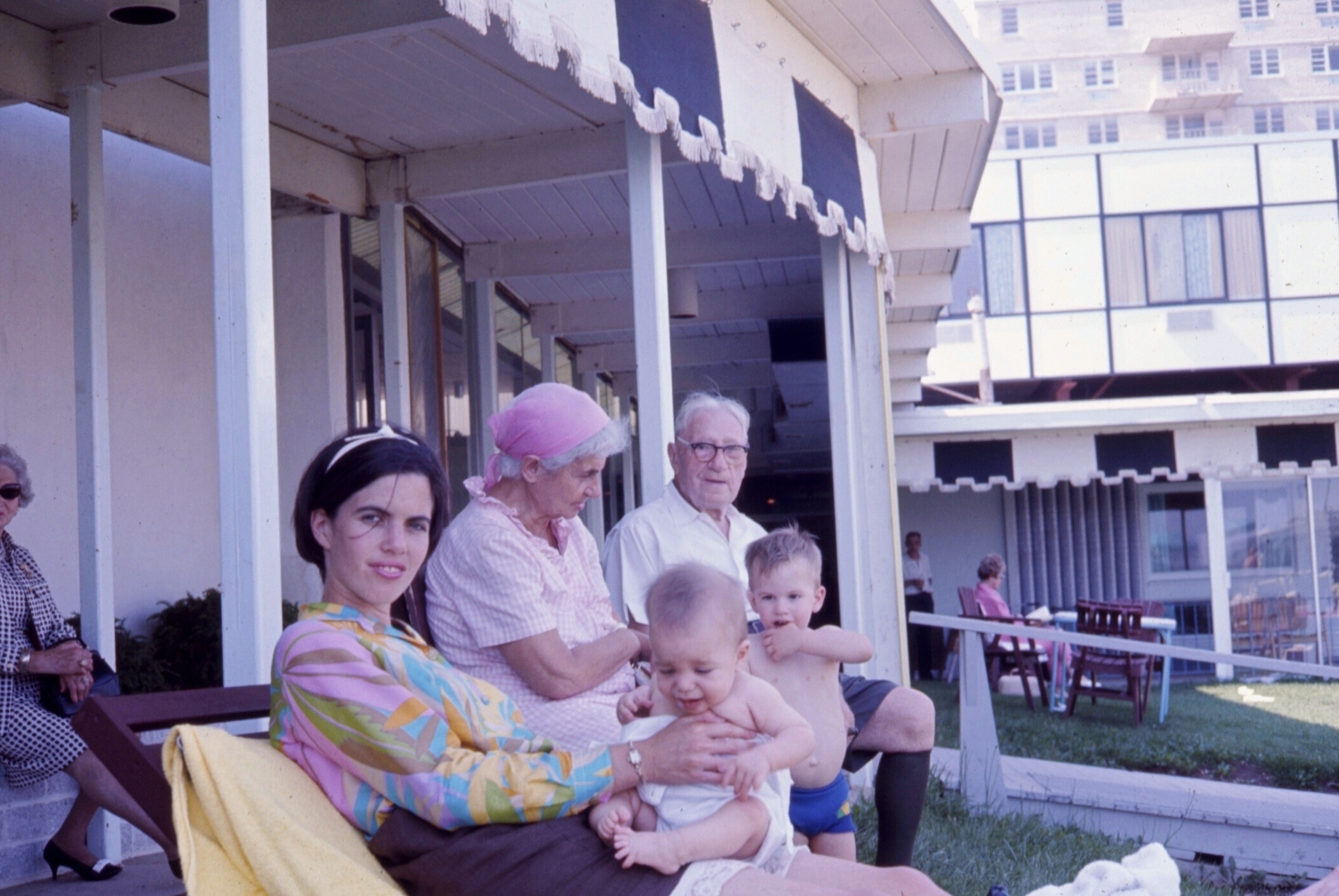
Andy with his mom and paternal great grandparents Jenny & Max Fish and his brother Laurence.
March 24th, 2017 is my paternal great grandparents Max and Jenny Fish’s 110th anniversary (they got married on March 24th, 1907). Below is a photo of a locket which Jenny’s closest friends gave her to commemorate their 50th wedding anniversary in 1957.
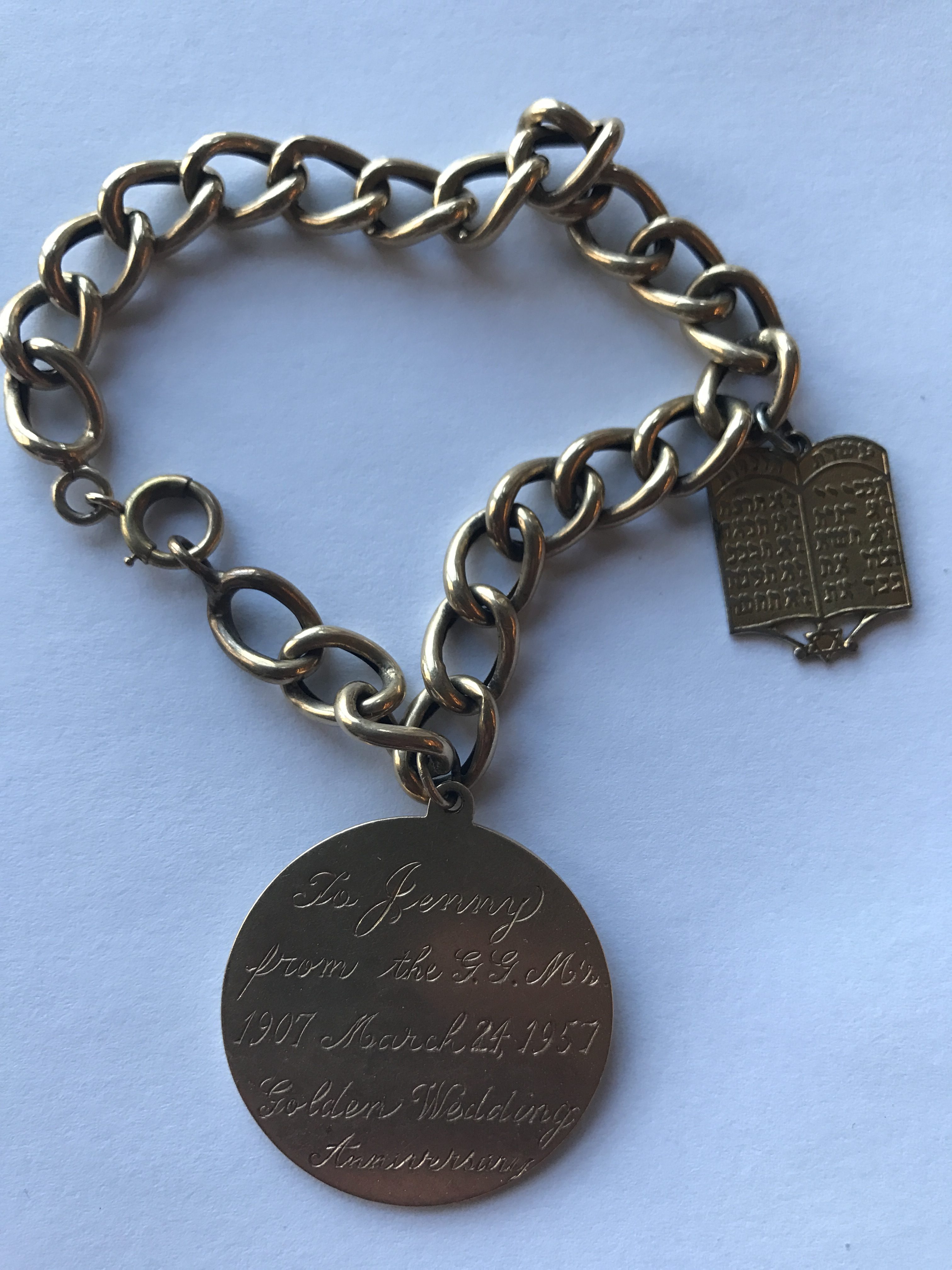
Charm bracelet given to Jenny Fish by her friends to commemorate Jenny & Max’s 50th wedding anniversary.
My maternal great grandfather Mayer Yellin was born in Russia in 1884. Mayer Yellin and Bessie Cohen Yellin got married on February 17th, 1907, 110 years ago.
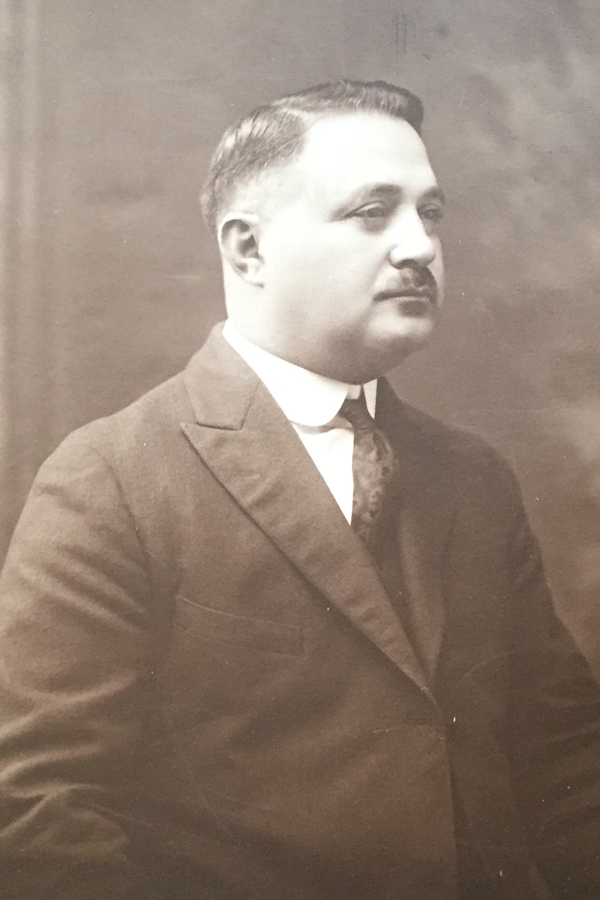
Portrait of Mayer Yellin c. 1910
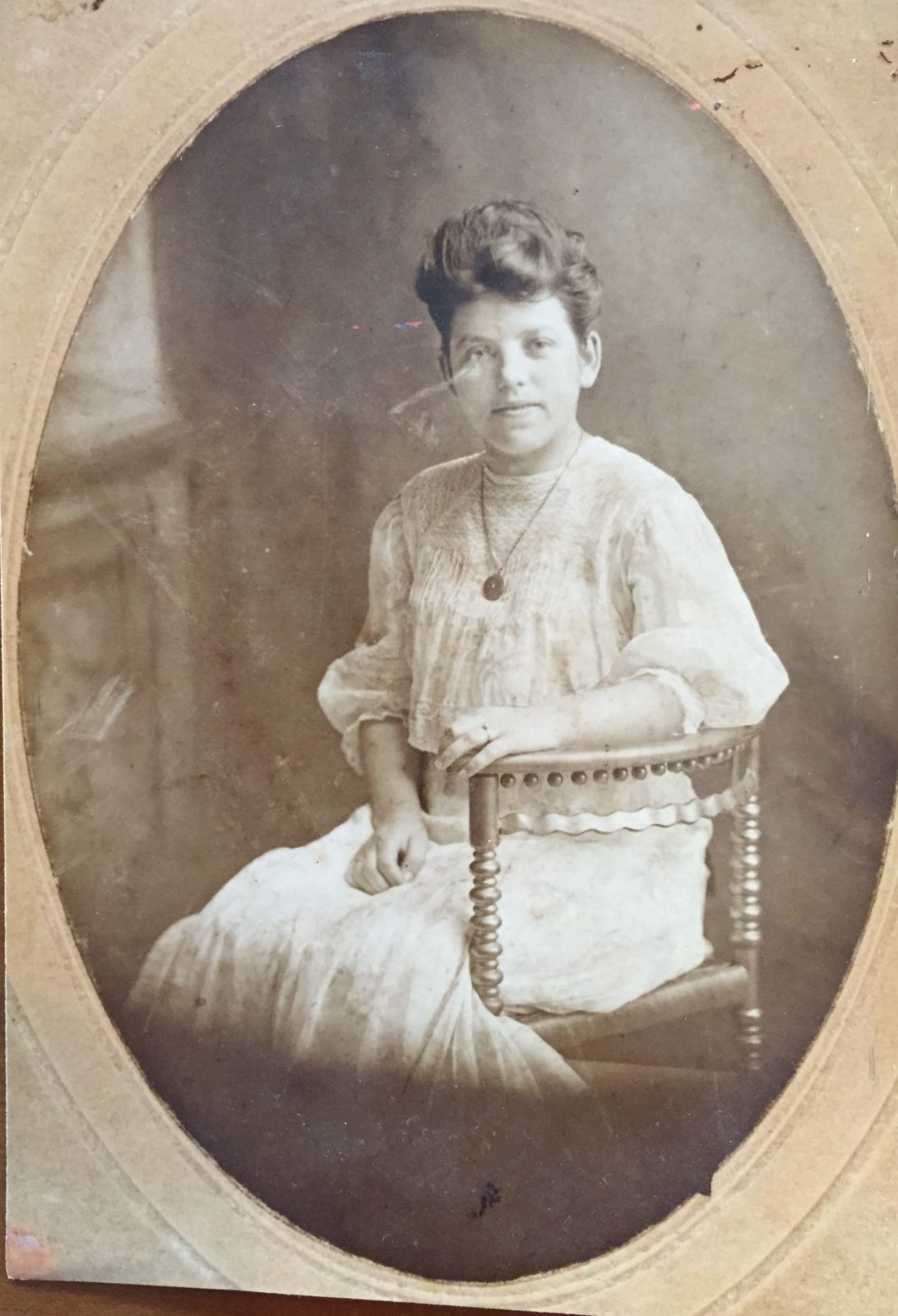
Portrait of Bessie Yellin c. 1910
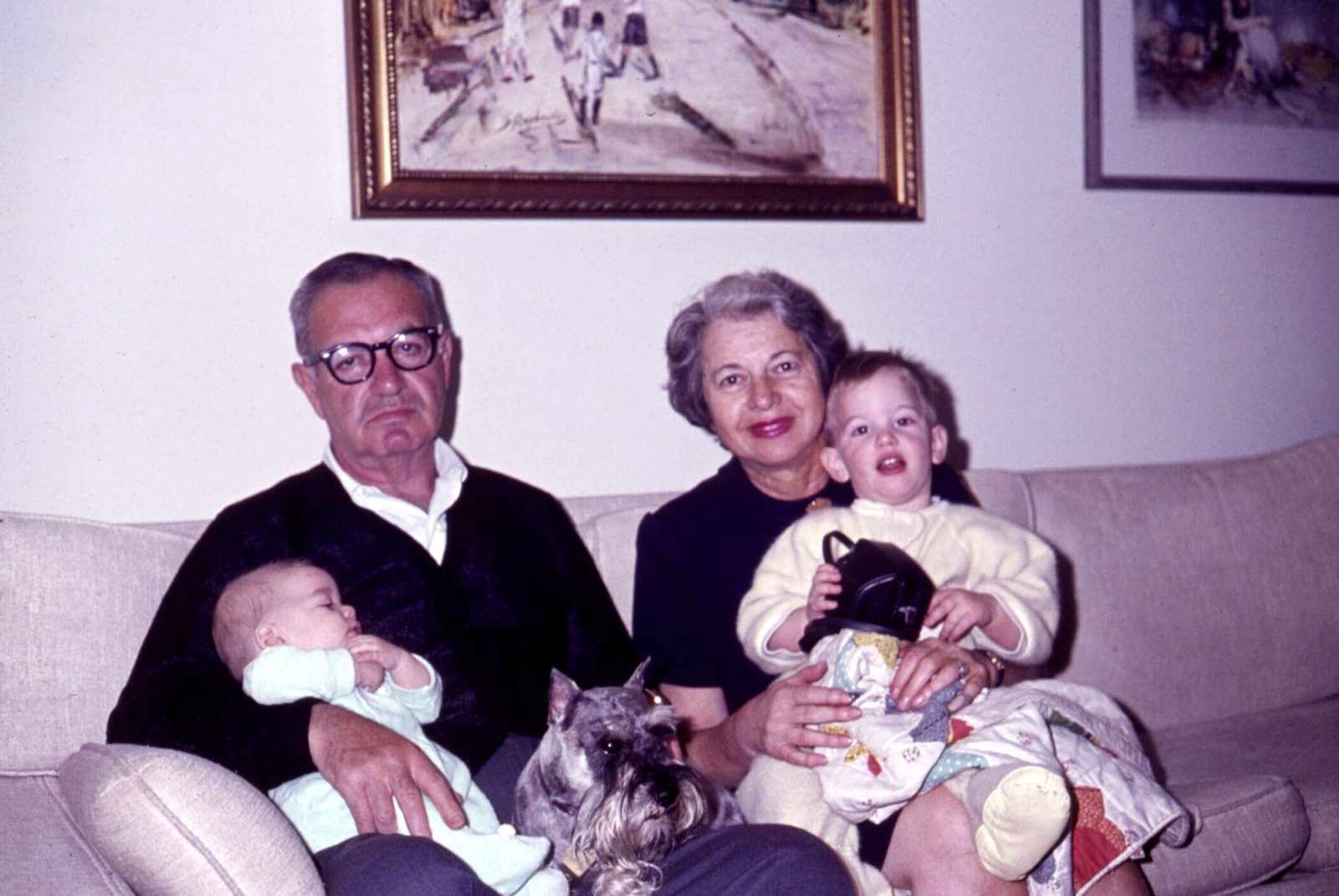
Andy and his brother, Laurence, with his maternal grandparents, Norman & Sophie Yellin.
Unfortunately I never met them. However, I was very close with my maternal grandparents, Norman (Mayer Yellin’s son) and Sophie Rosen Yellin. Above is a photo of Andy and Laurence (my brother) with our maternal Grandparents (Normie and Sophie Yellin) in 1968.

